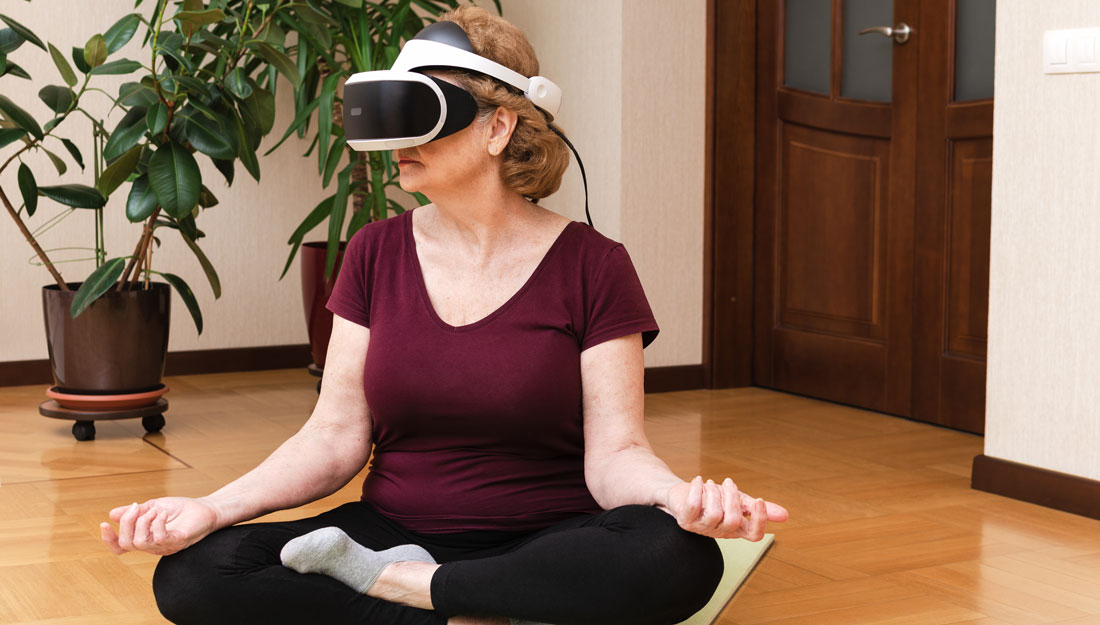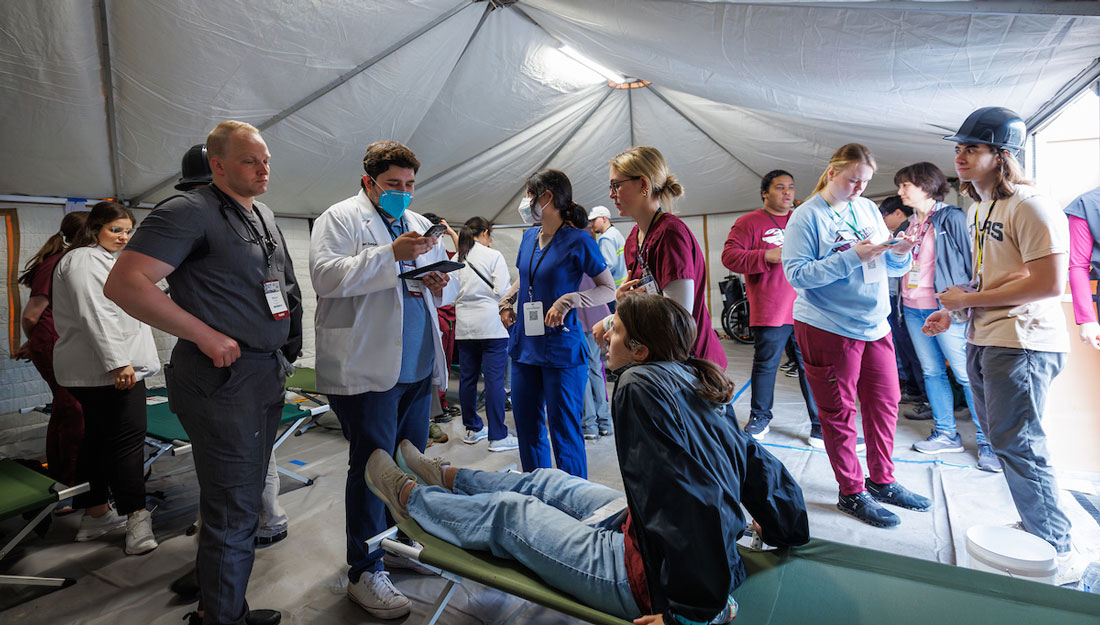- Ann Kellett, PhD
- Public Health, Research, Show on VR homepage
Using immersive virtual reality devices during meditation can alleviate depression and anxiety symptoms
Study also shows it can increase control of emotions such as anger and sadness

Clinical depression is expected to be the most common disease worldwide by 2030. (Adobe Stock)
A new, longitudinal study from the Texas A&M University School of Public Health provides additional empirical evidence that meditation using immersive virtual reality devices provides greater relief from depression and anxiety symptoms than meditation alone.
The study, funded by the National Council for Therapeutic Recreation Certification, was published in Frontiers in Psychology.
“Treatments that use medications are the most effective in addressing mental health disorders, but they also can bring unwanted side effects,” said Junhyoung “Paul” Kim, PhD, a researcher in the Department of Health Behavior involved with the study. “That led to the current effort to develop treatments that rely less on drugs or are entirely drug-free, such as the practice of mindfulness through meditation.”
Kim noted that research on these treatments is important, given that clinical depression, or major depressive disorder, is expected to be the most common disease worldwide by 2030, according to the World Health Organization.
“People with depression, who experience extreme agitation, feelings of worthlessness and suicidal thoughts, are at increased risk for other conditions like cancer and diabetes and also are more likely to experience anxiety, a state of constant worry and dread that often leads to substance abuse and other behavioral challenges,” Kim said. “Both conditions impair emotional regulation, affecting well-being and quality of life.”
For their study, Kim, along with Marcia Ory, PhD, with the Department of Environmental and Occupational Health, and lead author Jungjoo “Jay” Lee, PhD, with the University of Southern Mississippi, worked with 25 individuals who had been diagnosed with depression and anxiety and were receiving care at a hospital in Indiana.
The study group had 11 males and 14 females, with a mean age of 42.1 years. They used Meta brand Oculus Quest 2 digital headsets for 30-minute meditation sessions of their own choosing three times a week for 10 weeks in the spring of 2023. The headsets provide an immersive virtual reality experience in which users select from several options, including their desired outcome (such as stress reduction or improved sleep), scenery (such as a meadow or beach) and natural sounds (such as birds chirping).
Before and after each session, participants completed a General Anxiety Disorder-7 questionnaire and underwent HeartMath-brand electrocardiograms to assess emotional regulation through the harmony of their heart rhythms with their nervous systems. They also completed the Patient Health Questionnaire-9 before and after two sessions.
Using electrocardiograms, the study affirmed previous findings that virtual reality meditation sessions significantly alleviated participants’ depression and anxiety symptoms and improved their emotional regulation.
“This is important knowledge for mental health professionals, clinicians and caregivers,” Kim said. “Meditation using immersive virtual reality has the potential to greatly benefit those in the United States who will experience depression at some point.”
Media contact: media@tamu.edu


